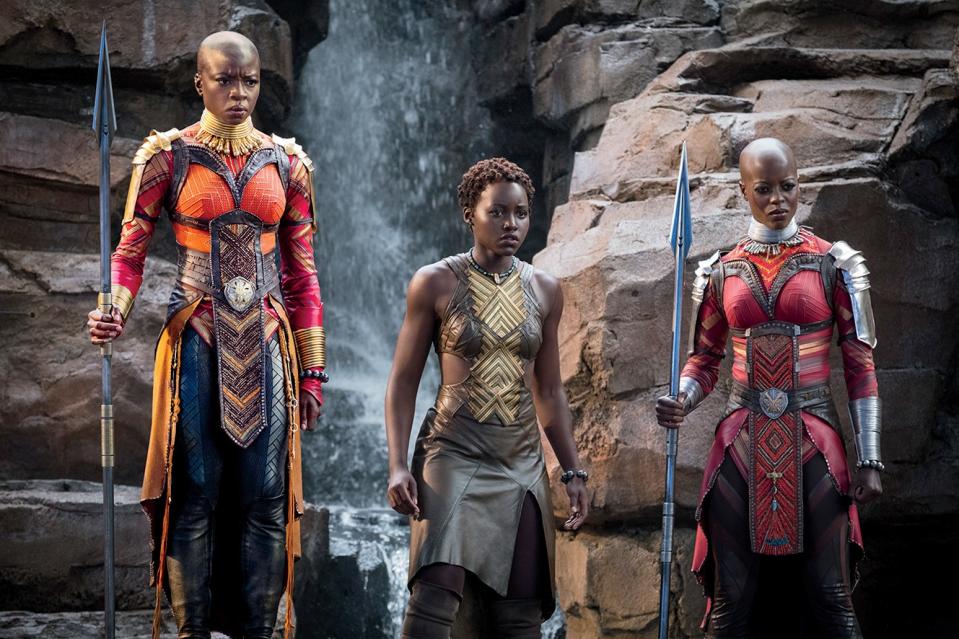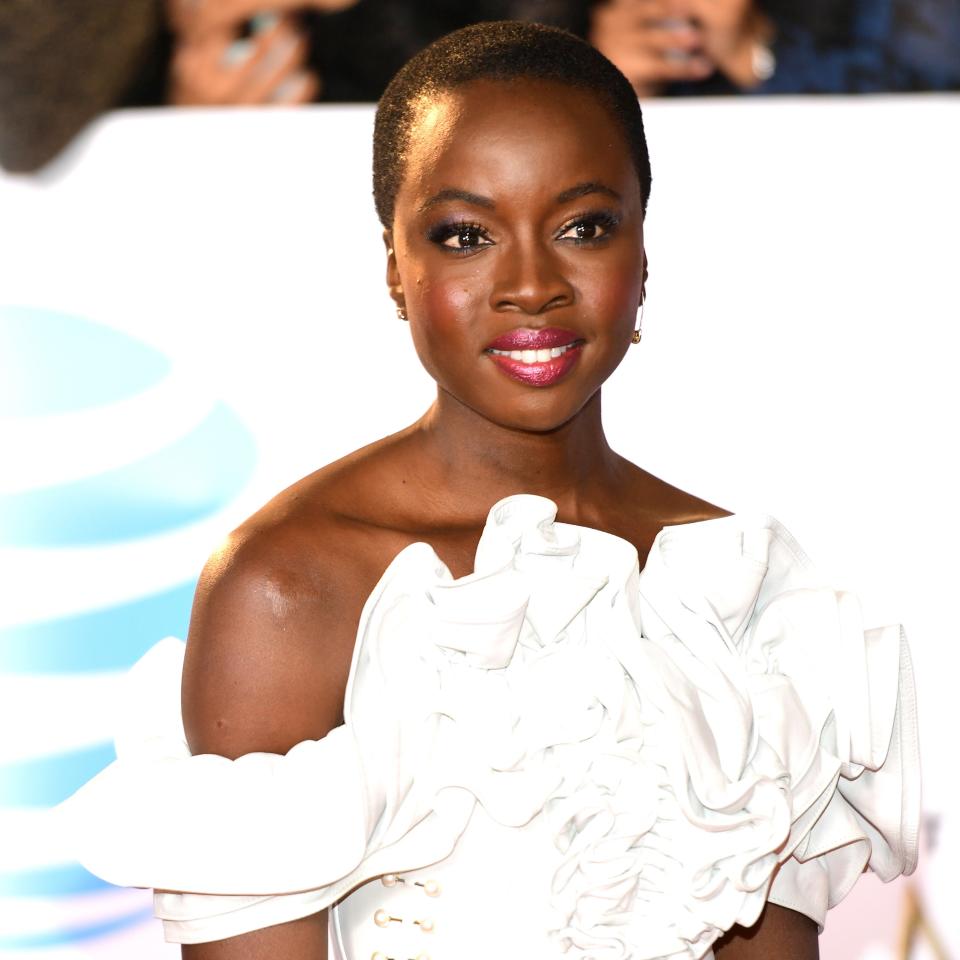'Black Panther' Star Danai Gurira on Embracing Her Zimbabwean Name: ‘I Realized I Didn't Want to Fit In’
0I didn’t know my name was Danai until I was five years old. Born in Grinnell, Iowa, to Zimbabwean academic parents, I was given a nickname, Dede, that stuck before I was cognizant enough to have a choice in the matter. I remember the day my mom decided to tell me I had another name, one folks in our tiny college town struggled to pronounce. She walked into the den, where I was playing with my favorite toys. She leaned in close and told me that in Shona, her native tongue, my real name meant “to be in love” or “to love one another”—an appropriate moniker for a girl born on Valentine’s Day.
As a typical little girl with cool cred to uphold, I wasn’t too into this other name. It sounded weird the way my mom pronounced it, her African cadences freely flowing, her tongue pulled to the back roof of her mouth as she said the first syllable like a d, but not really, her mouth wide as she pronounced the a and i at the end of this strange new designation. Everyone called me Dede. My teachers, my friends, my siblings, me. What was I to do with this new knowledge she imposed on me? I chose to do nothing. I retained Dede; it sounded close enough to a Western name and made me feel like I fit in, to some extent at least. Though I had a pretty joyous childhood in Iowa, we were one of only two black families in town, and Mom and Dad already talked differently from everyone else. A strong African name? Too much.
We moved to Zimbabwe less than a year later, and though Danai was on the register, certificates, trophies, Dede prevailed still. My own endorsement made it so. Even my parents used Danai only after they’d called for me repeatedly and I didn’t answer. “Danai!” was the sign that patience was being lost. But as I went into my adolescent years, a consciousness built up in me, perhaps because I started reading Toni Morrison, Alex Haley, James Baldwin, speeches by Martin Luther King Jr., The Autobiography of Malcolm X. (My mother being a librarian, our house was littered with literature, American and otherwise.) I started to connect the dots around why I was rejecting my people’s cultural markers and the dominating effects of Eurocentric culture. I questioned why I didn’t speak my parents’ native language and began to test how much Shona I knew, embracing the sounds, the tonalities, of this original tongue of my foremothers.
I can’t say exactly when it happened, but thank God that it did: I saw that rejecting my own culture, down to the name my parents had given me, was unacceptable. All of a sudden I needed to lay claim to what folks had fought and died for me to have—the freedom to speak my own language, my own name. I was in the country where everyone knew how to say my real name, the right way, and yet I still introduced myself by my default American nickname. In Zimbabwe my nickname was the strange one; everyone knew I surely had a Shona name and was using Dede for inexplicable reasons. Some would repeat it back to me, curious and confused. Why did I hold on so hard to this vestige of my connection to America? I was born there; why did I feel I had to prove further connection?

Okoye (Danai Gurira), Nakia (Lupita Nyong'o)
I noticed how those of my parents’ generation all had English names—their parents weren’t given much of a choice: Missionaries told my grandparents their children couldn’t be christened without one. In the U.S. my parents had denounced that falsehood, proudly giving all their children Shona names. My middle name, Jekesai, means “to illuminate,” taken from a hymn about praying for a light at the end of a dark tunnel. I was born amid the war for independence in Zimbabwe, and my parents didn’t know whether they’d ever be able to go back. Jekesai was a declaration of their hopes that light would come.
I realized my heritage was to be celebrated, not denied. I didn’t want to fit in to what I perceived as a more Western, more acceptable mainstream. I wanted to bring light to those who should be seen more, heard more: people of marginalized cultures. I began to ask people to call me Danai. That choice has affected every choice I’ve made since—the stories I tell, the characters I play, the activism I embark upon. It has influenced everything from plays I write (including Eclipsed, about a girl thrown into a rebel war camp in Liberia) to portraying a general of an African king’s army in Black Panther to cofounding the nonprofit Almasi Arts, a Zimbabwean American dramatic arts collaborative.
The irony that American greats helped bring me to this initial awakening doesn’t go unnoticed by me. It’s what makes me what I am—Zimerican, I call it. Both Zimbabwe and America resonate in me in equally significant parts and can’t be extricated from each other. Right now both countries sit at defining moments: America faces political division and a crisis of leadership, and Zimbabwe is finding its footing in a transition of power after decades under one man’s rule. I’ve never felt the weight of my biculturalism more intensely. All I know to do is remember who I am and be ready to participate, as my full self: Danai Jekesai Gurira—a Zimerican.
Danai Gurira is an actress, Tony-nominated playwright, and activist. She stars in Black Panther and on The Walking Dead.


